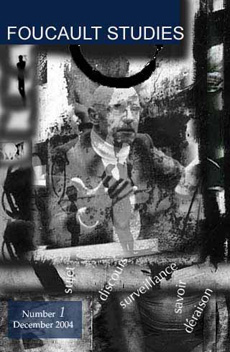The Contagion of Difference: Identity, Bio-politics and National Socialism
DOI:
https://doi.org/10.22439/fs.v0i1.565Abstract
Michel Foucault's concept of bio-politics entails the management and regulation of life processes within the population as a whole. This administration of the biological was perhaps most manifest in the German state under National Socialism. Indeed, Foucault remarks that there was no other state of the period in which "the biological was so tightly, so insistently regulated." However while the Nazi regime evinced this bio-political concern with the management of life, it also released an unprecedented murderous potential. It is this paradox, that the care of life can become the administration of death, or what Foucault deemed the transition from bio-politics to thanato-politics, that I wish to investigate through an examination of the construction of the Jewish subject through Nazi medical discourse. This paper will examine how medico-political discourse facilitated the construction of medically authorized norms that constructed the Jew as both a biological and social threat to the body politic, and how this discursively produced "Other" informed the transition from bio-politics to thanato-politics within the confines of the German medical establishment.Downloads
Published
2004-12-01
How to Cite
Enoch, S. (2004). The Contagion of Difference: Identity, Bio-politics and National Socialism. Foucault Studies, (1), 53–70. https://doi.org/10.22439/fs.v0i1.565
Issue
Section
Articles
License
Authors retain copyright to their work, but assign the right of the first publication to Foucault Studies. The work is subject to a CC BY-NC-ND 4.0 license, but despite these restrictions, authors can take for granted that Foucault Studies will permit articles published in Foucault Studies to be translated or reprinted in another format such as a book providing a full reference is made to Foucault Studies as the original place of publication.



